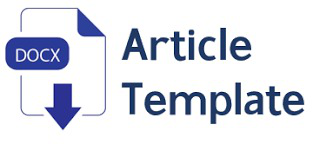Reformasi Konstitusi Indonesia: Fenomena Transisi Kekuasaan
DOI:
https://doi.org/10.14421/sh.v2i1.1902Abstract
One of the main demands of the momentum of reform in Indonesia is aconstitutional 1945 amendment, is due to the pre-reform constitution have not been able to achieve democratic governance, and even tended to authoritarian and centralized.
And has devastated all pillars of democracy, weak law enforcement and respect for human rights, as well as the role of local fecklessness. Exactly in this section, the constitutional reform carried in one hand bring a change in the structure of the political system, but noted the issue of overlapping of authority between state institutions which of course can affect performance and cultur democratization which would be built.
Presumably indeed, constitutional reform in addition to opening democratic space, also opened a dimensional complexity of the constitutional problem.
References
Asshidique, Jimly, Menuju Negara Hukum Yang Demokratis, sekertariat
jendral dan kepaniteraan Mahkamah Konstitusi Jakarta, 2008
Fatwa, A.M., Potret Konstitusi Pasca Amandemen UUD 1945, Jakarta:
Kompas Media Nusantara, 2009.
Gaffar, Afan, Politik Indonesia Transisi menuju Demokrasi, Yogyakarta:
Pustaka Pelajar, 2006.
Indrastuti, Lusia, & Susanto Polamolo, Hukum Tata Negara dan Reformasi
Konstitusi di Indonesia, Yogyakarta: Total Media, 2013
Mahfud MD, Moh., Pergulatan Politik dan Hukum di Indonesia, Yogyakarta:
Gramedia, 1999
Muhaimin, Yahya A., Perkembangan Militer dalam Politik di Indonesia 1945-
, Yogyakart: Gadjah Mada University Press, 1982
Tutik, Titik Triwulan, Konstruksi Hukum Tata Negara Indonesia pasca
Amandemen UUD 1945,
Wahyudi, H. Alwi, Hukum Tata Negara Indonesia dalam perspektif pancasila
pasca reformasi. Jakarta: Pustaka Pelajar, 2012.
Yusuf, Slamet Effendy & Umar Basalim, Reformasi Konstitusi Indonesia
perubahan pertama UUD 1945, Jakarta: Pustaka Indonesia Satu, 2000








